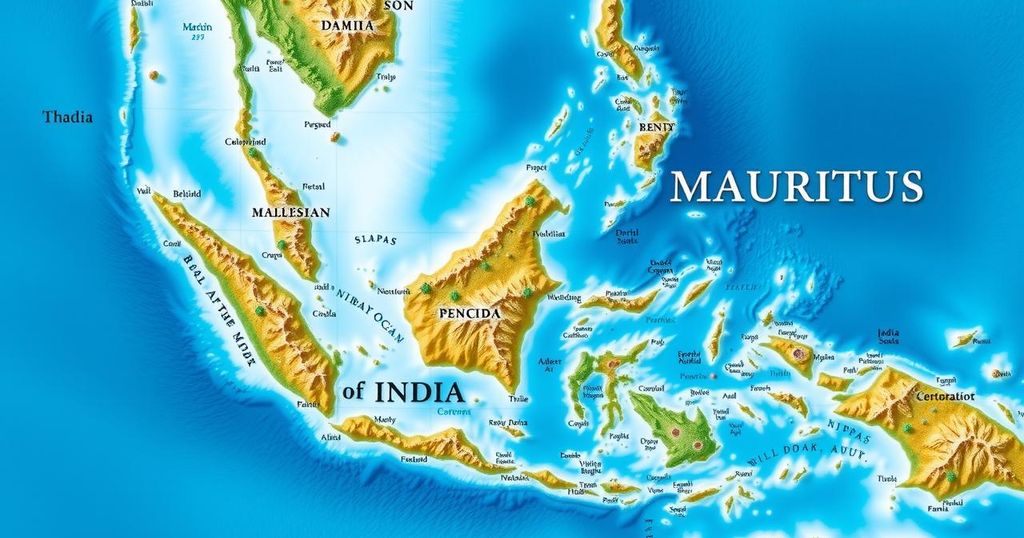India and Mauritius: Navigating Great Power Rivalries in the Indian Ocean

Mauritius faces pressing issues like water supply over political infrastructure. The strategic partnership with India is significant amid rising great power rivalries. French President Macron’s visit seeks to reinforce ties, while China’s presence grows. Mauritius’s strategic location positions it as a key player for trade between Africa and China, with the US increasing its influence. India’s adaptability will be essential to navigate this landscape.
The current pressing issue for Mauritius is not the construction of a new parliament building, as Kwang Poon, a geo-strategist in Port Louis, emphasizes. Instead, he suggests that critical challenges, such as improving water supply, must take precedence. He perceives support from India in addressing these urgent matters, including the establishment of new reservoirs, as far more significant than a new parliament, which could be seen as a secondary priority.
Kwang Poon argues that the recently enhanced strategic partnership following Prime Minister Narendra Modi’s visit indicates India’s growing focus on its interests amidst escalating great power rivalries in the Indian Ocean region. He observes that the geographical positioning of Mauritius has historically led to competitive dynamics among powers such as the US, France, China, and even Japan.
The visit of French President Emmanuel Macron to Port Louis next month is likely to strengthen the long-standing ties dating back to the 18th century. Given the prevalence of the French language and the inflow of French tourists, France remains a significant player in Mauritius. Simultaneously, China’s influence is notable, with a variety of Chinese products available in the local markets. Poon points out that unlike some African nations that have embraced China’s Belt & Road Initiative, Mauritius appears to be navigating this landscape with greater caution, possibly due to Indian interests.
With recent developments in India-China relations, Kwang Poon raises questions about their potential impact on Mauritius’s strategic positioning. He highlights that the ongoing trade tensions, particularly arising from the tariff wars imposed by Donald Trump, may lead to heightened trade between China and African nations, including Mauritius. Given its location, Mauritius serves as a crucial trans-shipment point for trade between Africa and China, presenting it with a strategic advantage over other regional ports such as Mombasa in Kenya.
Furthermore, Mauritius aims to develop its port operations akin to Singapore, which managed over 40 million TEUs last year, thereby enhancing its status as a trans-shipment hub. Poon notes the burgeoning presence of the US, exemplified by the construction of a significant embassy complex in Port Louis, indicating the United States’ growing interest in the nation. This involvement is linked to its military operation at Diego Garcia, a strategic base established in the 1970s, which underscores continued US influence in the region.
The future may pose challenges for India as the US seeks to strengthen its role in Mauritius. While Poon suggests the absence of an American diaspora could provide India with an advantage given its substantial Indian community, he cautions that India must remain proactive and adaptable to sustain its alignment with Mauritius’s priorities.
This article articulates the strategic complexities and power dynamics affecting Mauritius, particularly in the context of great power rivalries in the Indian Ocean. Kwang Poon emphasizes the importance of prioritizing pressing local issues, such as water supply over political infrastructure, while navigating relationships with major powers including India, China, France, and the United States. The geopolitical positioning of Mauritius serves as a natural advantage, suggesting that adaptability will be crucial for India to maintain its influence in this evolving landscape.
Original Source: stratnewsglobal.com








